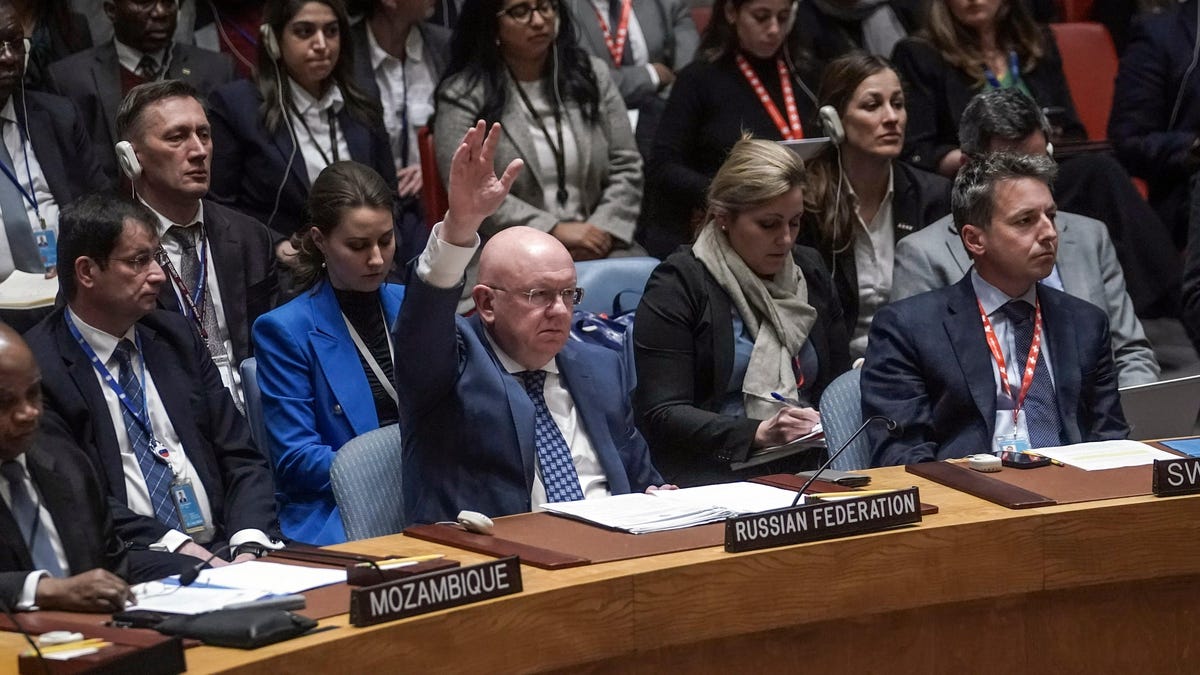Analysis of Russia’s Veto on U.N. Resolution Regarding Nuclear Weapons in Space
This week, Russia exercised its veto power in the United Nations Security Council to block a draft resolution aimed at preventing the placement of nuclear weapons in orbit. The rejection by Russia, the only member to vote against the resolution sponsored by the U.S. and Japan, has raised concerns about the country’s intentions in the realm of space militarization.
Russia’s Stance
Russia’s rejection of the U.N. resolution does not definitively indicate that it currently possesses orbital weapons capable of disrupting satellite constellations. However, it sends a strong message that Russia is steadfast in its efforts to resist pressure, particularly from the U.S., to abandon the development of anti-satellite weaponry.
As the resolution sought to prohibit the deployment of nuclear weapons and other weapons of mass destruction in space, it aligned with the principles outlined in the 1967 Outer Space Treaty, a landmark agreement ratified by both the U.S. and Russia. This treaty prohibits the placement of nuclear weapons in space or on celestial bodies, with a broader goal of promoting the peaceful utilization of outer space and preventing an arms race in orbit.
International Response
With Russia’s veto preventing the adoption of the resolution, National Security Advisor Jake Sullivan expressed concerns regarding Russia’s alleged development of a satellite carrying a nuclear device. Despite Russia’s public statements disavowing any plans to deploy nuclear weapons in space, its veto of the resolution has fueled skepticism among the international community about its true intentions.
In the past, the White House confirmed intelligence reports suggesting Russia’s pursuit of nuclear anti-satellite weapons. While Russia has denied these allegations, its history of engaging in anti-satellite activities, such as the destruction of a defunct Soviet-era satellite in 2021, underscores the complexities and risks associated with militarizing outer space.
Global Diplomatic Efforts
Russia’s rejection of the U.N. resolution has illuminated existing divisions within the international community regarding the regulation of space weapons. While Russia and China advocated for a comprehensive ban on all weapons in outer space, their proposed amendment to the resolution failed to garner sufficient support.
Despite the setback, the resolution has underscored the evolving landscape of space alliances, with the U.S. strengthening its cooperation with Japan through initiatives like the Artemis program. Concurrently, Russia and China are pursuing their lunar ambitions, reflecting distinct strategic priorities and partnerships in the space domain.
Conclusion
As geopolitical tensions manifest in the realm of space policy, the implications of Russia’s veto on the U.N. resolution reverberate across the international space community. While diplomatic efforts continue to navigate the complexities of space governance, the specter of a potential space conflict looms, underscoring the need for dialogue, transparency, and collaboration in shaping the future of space exploration and security.
Image/Photo credit: source url





